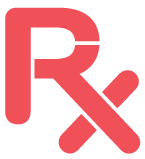Niacinamide
Set Dosage Details
Manufacturer
Form
Dosage
Quantity
CLOSE
| WALGREENS |
$2.87
With Free Coupon
|
||
| GIANT EAGLE PHARMACY |
$5.81
With Free Coupon
|
||
| RITE AID PHARMACY |
$7.99
With Free Coupon
|
||
| WALMART PHARMACY |
$8.39
With Free Coupon
|
||
| WALGREENS |
$2.87
With Free Coupon
|
||
| GIANT EAGLE PHARMACY |
$5.81
With Free Coupon
|
||
| RITE AID PHARMACY |
$7.99
With Free Coupon
|
||
| WALMART PHARMACY |
$8.39
With Free Coupon
|
||

Drug Info for niacinamide
Niacin is used with diet changes (restriction of cholesterol and fat intake) to reduce the amount of cholesterol (a fat-like substance) and other fatty substances in your blood and to increase the amount of high density lipoprotein (HDL; ''good cholesterol''). Niacin can be used in a number of situations including the following: alone or in combination with other medications, such as HMG-CoA inhibitors (statins) or bile acid-binding resins; to decrease the risk of another heart attack in patients with high cholesterol who have had a heart attack; to prevent worsening of atherosclerosis (buildup of cholesterol and fats along the walls of the blood vessels) in patients with high cholesterol and coronary artery disease; to reduce the amount of triglycerides (other fatty substances) in the blood in patients with very high triglycerides who are at risk of pancreatic disease (conditions affecting the pancreas, a gland that produces fluid to break down food and hormones to control blood sugar). Niacin is also used to prevent and treat pellagra (niacin deficiency), a disease caused by inadequate diet and other medical problems. Niacin is a B-complex vitamin. At therapeutic doses, niacin is a cholesterol-lowering medication. Results of a clinical study in people with heart disease and well-controlled cholesterol levels that compared people who took niacin and simvastatin with people who took simvastatin alone and found similar results for the two groups in the rate of heart attacks or strokes. Taking niacin along with simvastatin or lovastatin also has not been shown to reduce the risk of heart disease or death compared with the use of niacin, simvastatin, or lovastatin alone. Talk to your doctor if you have questions about the risks and benefits of treating increased amounts of cholesterol in your blood with niacin and other medications.
- Pure Niacinamide
- Long Acting Tablet
- Capsule
- Tablet
- By mouth
Take your medicine as directed. Your dose may need to be changed several times to find what works best for you. Carefully follow your doctor's instructions about any special diet or exercise program.
It is best to take this medicine after your last meal of the day.
Swallow the extended-release tablet whole. Do not crush, break, or chew it.
You should not use this medicine if you have had an allergic reaction to niacinamide (niacin). You may not be able to use this medicine if you have severe liver disease, ulcers, or if you have certain bleeding problems.
This medicine may cause a warmth or redness in your face, neck, arms, or upper chest. This is called "flushing," and it usually improves after you have been taking niacinamide on a regular basis for a few weeks. To help prevent flushing, do not drink alcohol or hot drinks when you take this medicine, and do not take it on an empty stomach. You should also ask your doctor about taking aspirin or an anti-inflammatory medicine (such as ibuprofen) before you use this medicine.
Make sure your doctor knows if you are pregnant or breast feeding, or if you have diabetes. Tell your doctor if you have angina (chest pain) or low blood pressure. Your doctor will need to know if you have a history of liver or gallbladder disease, ulcers, gout, or jaundice (skin or eyes turn yellow).
Follow your doctor's instructions carefully if you are switching to this medicine from another form of niacinamide. The dose may be different if you switch from the regular tablet to the extended-release tablet.
Your doctor will do lab tests at regular visits to check on the effects of this medicine. Keep all appointments.
Tell any doctor or dentist who treats you that you are using this medicine. This medicine may affect certain medical test results.
Make sure your doctor knows if you are also using medicine to lower blood pressure. Some blood pressure medicines are atenolol, diltiazem, nifedipine, propranolol, verapamil, Cartia®, Coreg®, Lotrel®, Norvasc®, Plendil®, Tiazac®, and Toprol®.
Make sure your doctor knows if you are using another medicine to lower cholesterol such as lovastatin, Lescol®, Lipitor®, Pravachol®, or Zocor®. Tell your doctor if you are using aspirin, vitamin supplements, or a nitrate medicine such as nitroglycerin or isosorbide.
Make sure your doctor knows if you drink alcohol on a daily or regular basis.
Tell any doctor or dentist who treats you that you are using this medicine. This medicine may affect certain medical test results.
This medicine may cause a warmth or redness in your face, neck, arms, or upper chest. This is called "flushing," and it usually improves after you have been taking niacinamide on a regular basis for a few weeks. To help prevent flushing, do not drink alcohol or hot drinks when you take this medicine, and do not take it on an empty stomach. You should also ask your doctor about taking aspirin or an anti-inflammatory medicine (such as ibuprofen) before you use this medicine.
- Yellowing of your skin or the whites of your eyes.
- Vision changes.
- Dark-colored urine or pale stools.
- Fast, uneven, or pounding heartbeat.
- Nausea, vomiting, loss of appetite, pain in your upper stomach.
- Headache.
- Muscle pain, tenderness, or weakness.
- Vision changes.
- Lightheadedness or fainting.
- Mild diarrhea, vomiting, or upset stomach.
